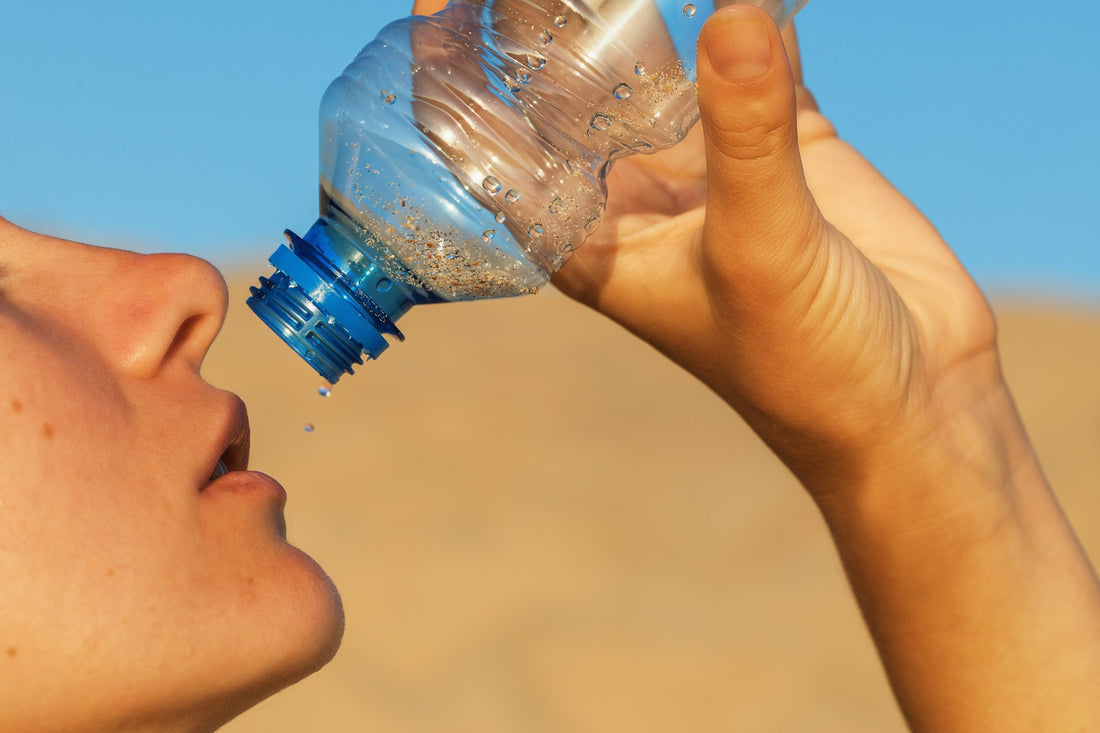Water is the essence of life, making up approximately 60% of the human body. Despite its critical role in overall health, many people fail to consume an adequate amount of water daily. This can lead to dehydration, a condition where the body loses more fluid than it takes in. Even mild dehydration can have profound consequences, impacting both physical and mental performance. Below, we explore six scientifically-backed ways dehydration can affect your body and mind, shedding light on the importance of staying hydrated.
Reduced Cognitive Function and Brain Fog
One of the most immediate dehydration mind effects is cognitive impairment. The brain is highly sensitive to fluid loss, and even a 1-2% decrease in hydration levels can significantly affect cognitive function. Studies have shown that dehydration can lead to difficulties in concentration, memory retention, and mental clarity. A study published in The Journal of Nutrition found that women who were just 1.36% dehydrated experienced mood swings, increased perception of task difficulty, and reduced focus. Similarly, another study from The American Journal of Clinical Nutrition reported that mild dehydration can lead to short-term memory problems and decreased attention span.
Increased Risk of Headaches and Migraines
Another common dehydration effect is headaches. Dehydration can cause blood volume to drop, reducing the oxygen supply to the brain and triggering pain receptors. A study published in Neurology found that dehydration can lead to more frequent and severe migraines. Another study suggested that increasing water intake could reduce headache frequency in individuals who experience chronic headaches. This highlights the direct link between hydration and neurological health, making water consumption essential for those prone to migraines or tension headaches.
Fatigue and Low Energy Levels
Feeling constantly tired or sluggish? Dehydration might be to blame. Water plays a vital role in maintaining energy levels by supporting blood circulation and oxygen transportation. When dehydration occurs, blood volume decreases, making the heart work harder to deliver oxygen and nutrients throughout the body. This increased strain can lead to chronic fatigue and reduced stamina. A study in The Journal of the American College of Nutrition found that dehydrated individuals reported higher levels of fatigue and confusion compared to those who were adequately hydrated. For those who experience midday energy crashes, increasing water intake could be a simple and effective solution.
Impaired Physical Performance
For athletes and fitness enthusiasts, dehydration body effects can be particularly detrimental. When the body is dehydrated, it loses electrolytes such as sodium, potassium, and magnesium, which are crucial for muscle function and coordination. Research published in The European Journal of Applied Physiology found that a mere 2% loss in body water weight could result in a noticeable decline in strength, endurance, and reaction time. Dehydration also leads to increased body temperature, as the body's ability to regulate heat diminishes. This not only hampers performance but also increases the risk of heat-related illnesses, such as heat exhaustion or heat stroke.

Digestive Issues and Constipation
Water is essential for digestion, and dehydration can significantly impact gastrointestinal health. One major dehydration body effect is constipation. When there isn’t enough water in the digestive system, the colon absorbs excess fluid from waste material, leading to hard, dry stools that are difficult to pass. A study in The European Journal of Clinical Nutrition found that individuals with low water intake were more likely to experience constipation compared to those who consumed adequate amounts of water. Additionally, dehydration can contribute to acid reflux and bloating, as the stomach requires sufficient water to produce digestive enzymes and maintain a healthy pH balance.
Mood Swings and Increased Stress Levels
Water isn’t just necessary for physical functions—it also plays a crucial role in emotional well-being. One of the lesser-known dehydration mind effects is its impact on mood and stress levels. A study published in Appetite found that participants who were mildly dehydrated reported increased feelings of anxiety, irritability, and stress. The reason for this is that dehydration affects the production of serotonin, a neurotransmitter responsible for regulating mood. Additionally, dehydration can elevate cortisol levels, the body’s primary stress hormone, leading to heightened stress responses. Maintaining proper hydration can, therefore, contribute to better emotional stability and overall mental health.
Conclusion
Hydration is more than just a basic health requirement—it is essential for optimal brain function, physical performance, digestion, and emotional well-being. The dehydration effects discussed above demonstrate how fluid loss can negatively impact both body and mind, often in ways we don’t immediately recognize. By prioritizing adequate water intake, individuals can enhance cognitive function, reduce headaches, improve physical endurance, maintain digestive health, and regulate mood. To avoid the harmful dehydration body effects and dehydration mind effects, experts recommend drinking at least 8-10 glasses of water daily, with additional intake during exercise or hot weather. Staying hydrated is a simple yet powerful way to support overall health and well-being.
BoostedOxygenWater is your ultimate hydration solution, ensuring peak performance for both body and mind. Dehydration can lead to fatigue, headaches, poor digestion, and reduced focus—but our oxygen-infused water keeps you energized, sharp, and refreshed. Designed for athletes, wellness enthusiasts, and everyday consumers, BoostedOxygenWater enhances cognitive function, supports digestion, and improves endurance. Elevate your wholesale offerings with a premium hydration product that meets today’s health-conscious demand. Don’t miss out on boosting your business with BoostedOxygenWater! Schedule a call today to explore bulk pricing and partnership opportunities. Let’s hydrate the world together—one sip at a time!
Reference:
1. Fasrini, U., Welan, R., & Anggraini, F. (2024). Building awareness on the importance of body fluids. Asian Journal of Community Services, 3(1), 137-146. https://doi.org/10.55927/ajcs.v3i1.7758
2. Masento, N., Golightly, M., Field, D., Butler, L., & Reekum, C. (2014). Effects of hydration status on cognitive performance and mood. British Journal of Nutrition, 111(10), 1841-1852. https://doi.org/10.1017/s0007114513004455
Popkin, B., D’Anci, K., & Rosenberg, I. (2010). Water, hydration, and health. Nutrition Reviews, 68(8), 439-458. https://doi.org/10.1111/j.1753-4887.2010.00304.x

